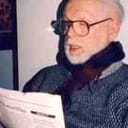Stay in the Loop
BSR publishes on a weekly schedule, with an email newsletter every Wednesday and Thursday morning. There’s no paywall, and subscribing is always free.
Good riddance to American Exceptionalism
Fareed Zakaria's "Post-American World'

Part of the America creation myth dates from the 17th-Century Puritan doctrine of the "shining City on a Hill" chosen by Divine Providence to be an example to the rest of mankind. Secularized by the deistic duo of Thomas Jefferson and Benjamin Franklin, this credo was later corrupted into an ideology that justified abusing the American Indian and imported African slaves.
Eventually it served as the belief that every American boy could grow up to be President, until the crisis of the Great Depression engendered "the American Dream," a compensatory ideology that reduced the original universal promise for all to the vague possibility that a few Americans could strike it very, very rich. It is this fatuous theory of America's Exceptionalism as a nation that Fareed Zakaria disassembles in his third book, The Post-American World.
Zakaria's genius lies in his ability to explain to Americans how unproductive, even self-destructive, their Myth of Exceptionalism is, indeed always has been. The issue, he explains, is not our decline but rather "the rise of the rest."
Friedman's flat world
The expansion of communications meant that the world got more deeply connected and became "flat," in Thomas Friedman's famous formulation. Cheap phone calls and broadband make it possible for people to do jobs for one country in another country—marking the next stage in the continuing story of capitalism.
With the advent of big ships in the 15th Century, goods became mobile. With modern banking in the 17th Century, capital became mobile. In the 1990s, labor became mobile. People couldn't necessarily go where the jobs were, but jobs could go where people were. And they went to programmers in India, telephone operators in the Philippines, and radiologists in Thailand.
You can't outsource all jobs, but the effects of outsourcing could be felt everywhere. The "rise of the rest" became more and more possible and attractive.
So Americans needn't feel they were declining. They just had to figure out how to go better with that new flow of "the rest"— a tough transition for monolingual Americans stuck in an Exceptionalist mindset.
Old grudges
Other successful nations were suddenly acting Exceptionalist for their own good reasons. Zakaria recalls an informal meeting in a Shanghai Internet café with a young Chinese go-getter:
"He was describing the extraordinary growth that was taking place in his country and a future in which China would be modern and prosperous. He was thoroughly Westernized in dress and demeanor, spoke excellent English, and could comfortably discuss the latest business trends or gossip about American pop culture. He seemed the consummate product of globalization, the person who bridges cultures and makes the world a smaller, more cosmopolitan place. But when we began talking about Taiwan, Japan and the United States, his responses were filled with bile."
Their hypocrisy and ours
You see, the Rising Rest has its own historical agenda, and that complicates the lives of both Risen and Riser. And each Riser will inherit memories left over from before the Rise. Globalization is no cinch! "When you tell us that we support a dictatorship in Sudan to have access to its oil," a young Chinese official told Zakaria in 2006, "what I want to say is, "'And how is that different from your support for a medieval monarchy in Saudi Arabia?' We see the hypocrisy, we just don't say anything yet."
For Zakaria, we must navigate shrewdly (and humbly) from a world of anti-Americanism to one of post-Americanism. Indeed, Zakaria himself— Indian by birth, but "American" in spirit since he was 18, having flown from Mumbai to study at Yale—is a model of post-exceptionalism.
His career points the way for his adopted country: Don't fret about losing. Concentrate on dealing fairly with the hordes that are rising, willy-nilly. His book probes how the rest of the world is dealing with the New Risers. Arrogance about having once been Number One won't do it. Joining the human race is the first step. It gets easier after that.
Eventually it served as the belief that every American boy could grow up to be President, until the crisis of the Great Depression engendered "the American Dream," a compensatory ideology that reduced the original universal promise for all to the vague possibility that a few Americans could strike it very, very rich. It is this fatuous theory of America's Exceptionalism as a nation that Fareed Zakaria disassembles in his third book, The Post-American World.
Zakaria's genius lies in his ability to explain to Americans how unproductive, even self-destructive, their Myth of Exceptionalism is, indeed always has been. The issue, he explains, is not our decline but rather "the rise of the rest."
Friedman's flat world
The expansion of communications meant that the world got more deeply connected and became "flat," in Thomas Friedman's famous formulation. Cheap phone calls and broadband make it possible for people to do jobs for one country in another country—marking the next stage in the continuing story of capitalism.
With the advent of big ships in the 15th Century, goods became mobile. With modern banking in the 17th Century, capital became mobile. In the 1990s, labor became mobile. People couldn't necessarily go where the jobs were, but jobs could go where people were. And they went to programmers in India, telephone operators in the Philippines, and radiologists in Thailand.
You can't outsource all jobs, but the effects of outsourcing could be felt everywhere. The "rise of the rest" became more and more possible and attractive.
So Americans needn't feel they were declining. They just had to figure out how to go better with that new flow of "the rest"— a tough transition for monolingual Americans stuck in an Exceptionalist mindset.
Old grudges
Other successful nations were suddenly acting Exceptionalist for their own good reasons. Zakaria recalls an informal meeting in a Shanghai Internet café with a young Chinese go-getter:
"He was describing the extraordinary growth that was taking place in his country and a future in which China would be modern and prosperous. He was thoroughly Westernized in dress and demeanor, spoke excellent English, and could comfortably discuss the latest business trends or gossip about American pop culture. He seemed the consummate product of globalization, the person who bridges cultures and makes the world a smaller, more cosmopolitan place. But when we began talking about Taiwan, Japan and the United States, his responses were filled with bile."
Their hypocrisy and ours
You see, the Rising Rest has its own historical agenda, and that complicates the lives of both Risen and Riser. And each Riser will inherit memories left over from before the Rise. Globalization is no cinch! "When you tell us that we support a dictatorship in Sudan to have access to its oil," a young Chinese official told Zakaria in 2006, "what I want to say is, "'And how is that different from your support for a medieval monarchy in Saudi Arabia?' We see the hypocrisy, we just don't say anything yet."
For Zakaria, we must navigate shrewdly (and humbly) from a world of anti-Americanism to one of post-Americanism. Indeed, Zakaria himself— Indian by birth, but "American" in spirit since he was 18, having flown from Mumbai to study at Yale—is a model of post-exceptionalism.
His career points the way for his adopted country: Don't fret about losing. Concentrate on dealing fairly with the hordes that are rising, willy-nilly. His book probes how the rest of the world is dealing with the New Risers. Arrogance about having once been Number One won't do it. Joining the human race is the first step. It gets easier after that.
What, When, Where
The Post-American World. By Fareed Zakaria. Allen Lane, 2008. Paperback, 336 pages; $15.95. www.amazon.com.
Sign up for our newsletter
All of the week's new articles, all in one place. Sign up for the free weekly BSR newsletters, and don't miss a conversation.
 Patrick D. Hazard
Patrick D. Hazard